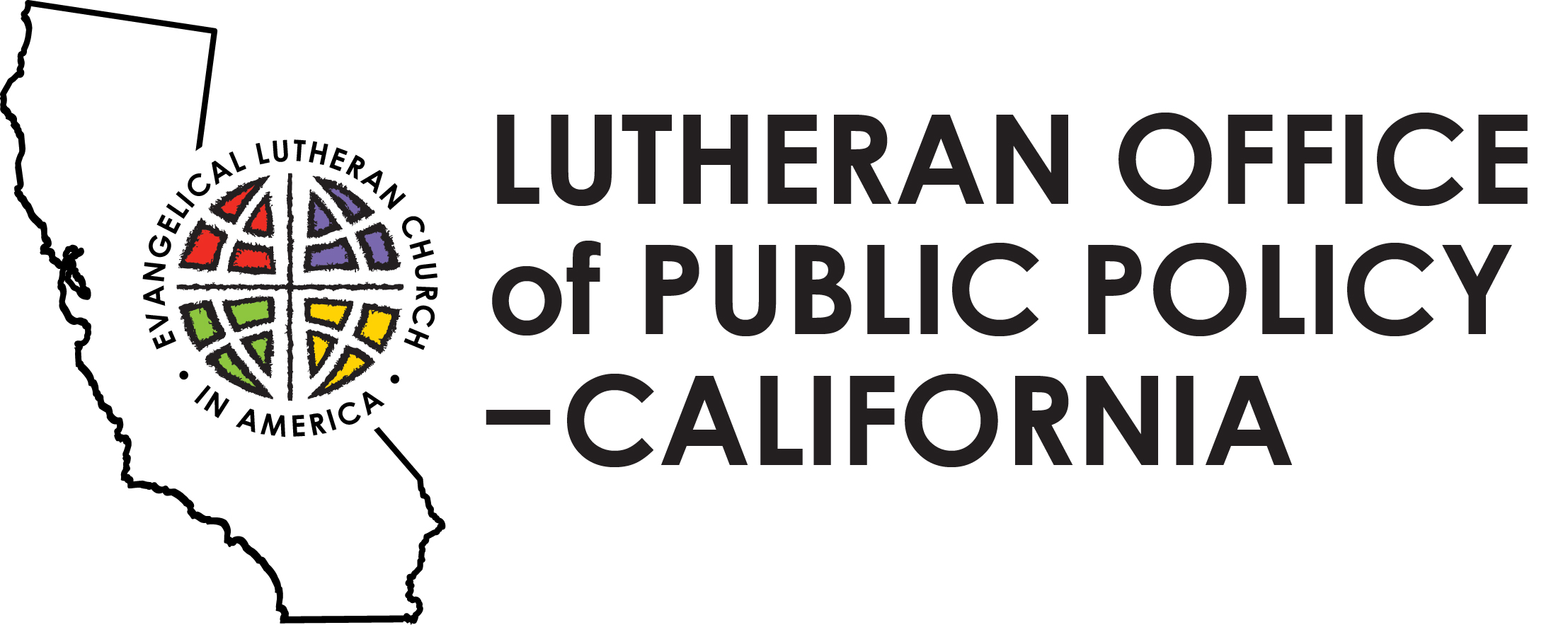On this National Census Day, commit to complete your form – but also encourage the community as well! Undercounting is a significant issue among groups which benefoit most form anti-poverty programs and from greater representation in decision-making. “Hard to count” individuals in census experience include persons residing in rural areas, young children, LGBTQIA persons, people experiencing homelessness, people who do not speak English, indigenous peoples and racial and ethnic minorities.
“An accurate count ensures that resources more justly go where they are needed most. It is also critical for representation I the political process as census information determines electoral maps,” says the Rev. Amy E. Reumann, Director of ELCA Advocacy. Before in-person census takers are scheduled to facilitate this once-every-10-years count, let’s encourage everyone we can to complete the census online, by mail or by phone – accessed at 2020census.gov.
 The ELCA is an official partner of the 2020 Census. Use these voices of Lutheran leaders, also available on social media @ELCAadvocacy, to help encourage the most accurate count possible.
The ELCA is an official partner of the 2020 Census. Use these voices of Lutheran leaders, also available on social media @ELCAadvocacy, to help encourage the most accurate count possible.
 “The Central States Synod encompasses two states (Kansas and Missouri), large metropolitan centers, small towns and rural communities, places where the population is growing with thriving businesses, and wide open spaces where homes are few and far. Our landscape from the Lake of the Ozarks to the plains of western Kansas is quite diverse as are our political views and agendas. But through the church we recognize and dare to proclaim, as Jesus did in the gospels, that we all have value and worth, that everyone counts and is important, that it is our diversity which reflects the image of God in our midst. And because everyone counts, everyone needs to be counted in the upcoming census to get a truer and more accurate picture of who we are.”
“The Central States Synod encompasses two states (Kansas and Missouri), large metropolitan centers, small towns and rural communities, places where the population is growing with thriving businesses, and wide open spaces where homes are few and far. Our landscape from the Lake of the Ozarks to the plains of western Kansas is quite diverse as are our political views and agendas. But through the church we recognize and dare to proclaim, as Jesus did in the gospels, that we all have value and worth, that everyone counts and is important, that it is our diversity which reflects the image of God in our midst. And because everyone counts, everyone needs to be counted in the upcoming census to get a truer and more accurate picture of who we are.”
– The Rev. Susan Candea, Bishop, ELCA Central States Synod [PHOTO CREDIT: FB@LRC-Central States Synod]
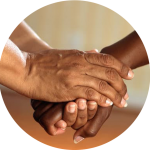 “People of color and indigenous people – we can’t afford the illusion of having the luxury of not engaging in this census, because the system doesn’t work for us. We have to do both: making sure our communities are counted and equitably represented in this census, and working to change systems and structures, elected leaders and representatives until they do work for all of us.”
“People of color and indigenous people – we can’t afford the illusion of having the luxury of not engaging in this census, because the system doesn’t work for us. We have to do both: making sure our communities are counted and equitably represented in this census, and working to change systems and structures, elected leaders and representatives until they do work for all of us.”
– The Rev. Albert Starr, Jr., ELCA Director, Ethnic Specific and Multicultural Ministries
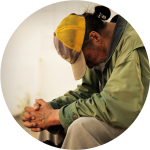 “Those of us struggling with homelessness and at risk of frequent eviction are often missed in our critical census count. Taking part in the census helps direct critical housing and homeless resources to our communities in the greatest need. From the Emergency Shelter Grants Program to the Special Milk Program for children, these programs depend on a complete and accurate count. In coordination with local census offices, houses of worship, shelters, service providers and others might be the only opportunity many have to take part in the census. Help your ministry, soup kitchen, or service program expand the count which can be completed online, by phone or by mail.”
“Those of us struggling with homelessness and at risk of frequent eviction are often missed in our critical census count. Taking part in the census helps direct critical housing and homeless resources to our communities in the greatest need. From the Emergency Shelter Grants Program to the Special Milk Program for children, these programs depend on a complete and accurate count. In coordination with local census offices, houses of worship, shelters, service providers and others might be the only opportunity many have to take part in the census. Help your ministry, soup kitchen, or service program expand the count which can be completed online, by phone or by mail.”
– Andrew Fuller, ELCA Advocacy Coordinator
 “Forty-five million versus 13 million. That’s the enormous disparity between the average number of words children with white collar parents who read to them hear by the age of four in contrast to children growing up with less access to books. However, reading and being read to has a significant life-long impact on our children and our society. Access to libraries becomes essential for healthy communities, and yet there are “book deserts” all across our nation. Without voice or vote themselves, kids cannot tell you how much reading matters to them – and they are often overlooked when it comes to census taking. Encourage counting the kids in the 2020 Census.”
“Forty-five million versus 13 million. That’s the enormous disparity between the average number of words children with white collar parents who read to them hear by the age of four in contrast to children growing up with less access to books. However, reading and being read to has a significant life-long impact on our children and our society. Access to libraries becomes essential for healthy communities, and yet there are “book deserts” all across our nation. Without voice or vote themselves, kids cannot tell you how much reading matters to them – and they are often overlooked when it comes to census taking. Encourage counting the kids in the 2020 Census.”
– The Rev. Janelle Hooper, ELCA Program Director for Ministry with Children
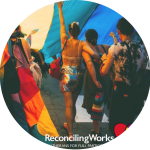 “As a member of the LGBTQIA+ community and as a person of faith, I know the importance of being seen, named and cared for by the communities I am part of. One way care for LGBTQIA+ people can increase is for us to be seen and counted across the country. For those from the LGBTQIA+ who are not in danger of losing their employment or housing by sharing their identity in the 2020 Census, I invite you to do so – knowing it will make a way for others to receive care.”
“As a member of the LGBTQIA+ community and as a person of faith, I know the importance of being seen, named and cared for by the communities I am part of. One way care for LGBTQIA+ people can increase is for us to be seen and counted across the country. For those from the LGBTQIA+ who are not in danger of losing their employment or housing by sharing their identity in the 2020 Census, I invite you to do so – knowing it will make a way for others to receive care.”
– Aubrey Thonvold, Executive Director, ReconcilingWorks [PHOTO CREDIT: FB@ReconcilingWorks]
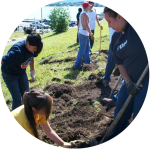 “The benefit of the census is deeply personal to our communities. Undercounting is a significant issue among groups which benefit most from anti-poverty programs and from greater representation in decision-making. Like our federally recognized tribes, our unrecognized untreatied undocumented people benefit from the very personal infrastructures that affects our lives, like healthcare, food programs, our education from Head Start and libraries to tribal colleges and Pell Grants being available. Counting matters.”
“The benefit of the census is deeply personal to our communities. Undercounting is a significant issue among groups which benefit most from anti-poverty programs and from greater representation in decision-making. Like our federally recognized tribes, our unrecognized untreatied undocumented people benefit from the very personal infrastructures that affects our lives, like healthcare, food programs, our education from Head Start and libraries to tribal colleges and Pell Grants being available. Counting matters.”
– Prairie Rose Seminole, ELCA Program Director, American Indian and Alaska Native Ministries [PHOTO CREDIT: USFWS Mountain-Prairie]
